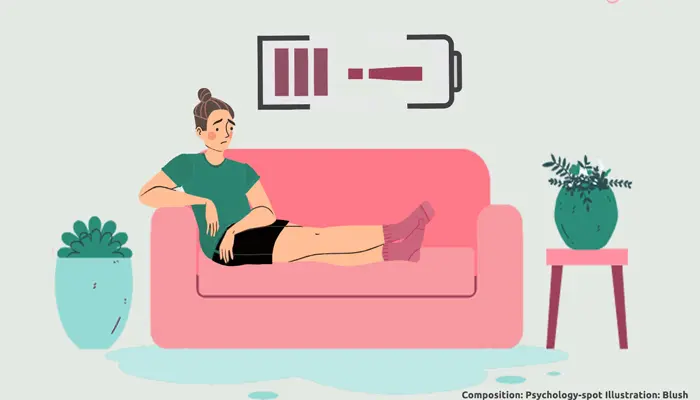
Have you ever forgotten an appointment you didn’t feel like going to? Or maybe you forgot a pending task that caused you tension? Or an unpleasant fact? It is not unusual.
Although we tend to think of our memory as a large reservoir of information where we keep our memories safely, in reality it is more like a dynamic store that changes continuously. Our memory rewrites memories and is even subject to “motivated forgetting”.
What is motivated forgetting?
The idea of motivated forgetting dates back to the philosopher Friedrich Nietzsche in 1894. Nietzsche and Sigmund Freud agreed that the repression of memories is a form of self-preservation. Nietzsche wrote that man must forget in order to advance and stated that it is an active process, in the sense that we forget specific events as a defense mechanism. Freud also made reference to the repressed memories that we erase from our memory because they cause us too much damage and we are not able to integrate them into our “self”.
His ideas were practically forgotten, but the two World Wars aroused the interest of psychologists and psychiatrists for this phenomenon as many veterans suffered a substantial and selective memory loss when they returned from combat.
However, motivated forgetting is not an alteration of memory but rather involves “erasing” unwanted memories from memory, more or less consciously. In many cases, it acts as a defense mechanism that blocks the memories that generate unpleasant emotions, such as anxiety, shame or guilt.
What motivates us to forget?
Motivated forgetting can occur for different causes, as explained by psychologists from the University of Cambridge:
• Attenuate negative emotions. The memories that we most tend to avoid are usually those that evoke fear, anger, sadness, guilt, shame or anxiety. In practice, we prefer to avoid painful or disturbing memories that cause us discomfort. When we manage to suppress them from our consciousness, those negative feelings disappear and we regain emotional stability.
• Justify inappropriate behavior. When we behave incorrectly and that behavior does not fit with our image of ourselves, we experience a dissonance that causes us great discomfort. Motivated forgetting is a strategy to avoid having to question ourselves and to maintain that internal status quo. In fact, people have been found to forget more the moral rules after behaving dishonestly.
• Preserve the image of oneself. We tend to protect our self-image by selectively remembering positive feedback and forgetting the negative one. This “memory neglect” occurs especially when we feel our identity threatened, in which case we push negative criticism and comments out of our conscience.
• Reaffirm beliefs and attitudes. Our most deeply held beliefs are often so well underpinned that they often resist evidence to the contrary. This rigidity may be due in large part to motivated forgetting as we tend to remember information selectively, choosing only that which fits our views and beliefs.
• Forgive others. Interpersonal relationships are often accompanied by the need to forgive the offenses that have hurt us. In some cases, motivated forgetting is the mechanism we use to erase these transgressions from our memory and to be able to turn the page.
• Maintain the bond. In other cases, motivated forgetting arises from the need to maintain the bond to a significant person in our lives. In fact, it is a common phenomenon in abused children or adolescents who need their parents. In this case, we forget the experiences that are not compatible with the attachment image to preserve that affective bond and maintain the relationship.
The mechanisms of Motivated Forgetting
Motivated forgetting can occur unconsciously or it can be due to a deliberate effort to forget certain facts or details. In fact, it can occur through two mechanisms:
• Repression. It is a primary defense mechanism through which we push our unpleasant or intolerable thoughts, impulses, memories, or feelings out of consciousness. It usually occurs, for example, in people who have been victims of violent acts, which cause them such great pain that the most terrible details are erased from their memory.
• Suppression. It is a conscious and voluntary mechanism through which we restrict thoughts and memories that are painful to us or that we do not want to accept. When a memory bothers us, we try to think of something else or change activities to expel that content from our mind.
By dint of rejecting that memory, its footprint goes weakening in our memory, which can lead to its forgetfulness. This active rejection triggers neural processes that impair access to unwanted memory, as if we were to cut the path that leads to that memory, so that there comes a point where we cannot retrieve it from memory.
In fact, it has been appreciated that the level of forgetting is proportional to the number of times we suppress a memory. This type of forgetting is not a phenomenon as unusual or complex as it may seem. An experiment conducted at the University of Washington proved this. These psychologists asked a group of people to keep a diary for two weeks in which they had to write down a single event that had happened to them each day. They were then asked to narrow the event down to two words to capture its essence and focus even more on memory.
After a week, the researchers told half of the participants that they did not need to remember the events of those first seven days and even asked them to make an effort to forget them. Thus, they found that the people instructed to forget remembered less than a third of the events recorded during the first week, while the rest remembered more than half.
Therefore, the researchers concluded that “People are capable of intentionally forgetting autobiographical memories, just as they forget words from a list. This phenomenon occurred regardless of whether the events were positive or negative and beyond their emotional intensity”.
Sources:
Anderson, M. C. & Hanslmayr, S. (2014) Neural mechanisms of motivated forgetting. Trends Cogn Sci; 18(6): 279–292.
Lambert, A. J. et. Al. (2010) Testing the repression hypothesis: effects of emotional valence on memory suppression in the think-no think task. Conscious. Cogn; 19: 281–293.
Joslyn, S. L. & Oakes, M. A. (2005) Directed forgetting of autobiographical events. Memory & Cognition; 33: 577-587.
Joormann, J. et. Al. (2005) Remembering the good, forgetting the bad: intentional forgetting of emotional material in depression. J. Abnorm. Psychol; 114: 640–648.



